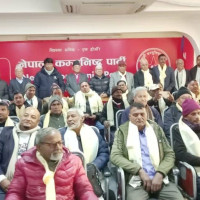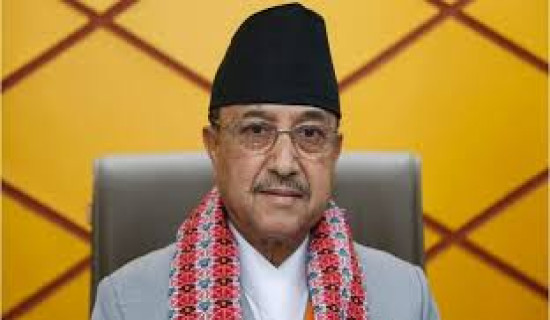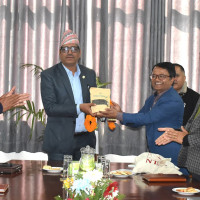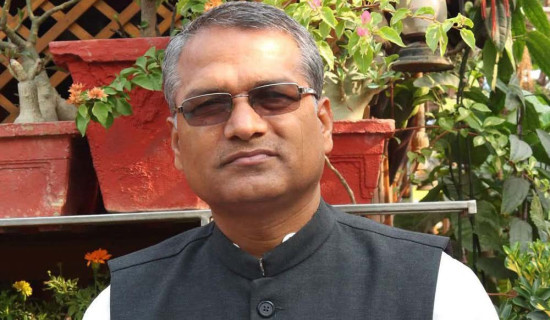- Saturday, 27 December 2025
Lone security man guards NHRC Jumla office
By Netra Shahi,Jumla, Dec. 10: The office of the National Human Rights Commission (NHRC) in Jumla has been functioning from an old building of the District Coordination Committee.
The faded signboard of the office is barely readable, and a motorbike covered with a tarpaulin stands at its entrance.
A woman waits by the office door. Since the NHRC curtailed its operational authority in Jumla five months ago, the branch office has been left in the hands of a security guard.
After the financial management system was transferred to Surkhet about a year ago, the office in Jumla was handled by one officer and one security guard.
However, following the officer’s transfer four months ago, the Jumla office has remained non-operational and is now manned by a security guard.
Branch Officer Dhanaraj Shahi, who was serving as the acting head of the office, was transferred to Nepalgunj in September last year. Since his transfer, no employee has been assigned to the Jumla office.
Security guard Kalpana Mahatara opens the office daily at 10 am. She admits that no service is delivered from the office.
With the reduction in staff and authority, local stakeholders have expressed concerns about the negative impact on service delivery and human rights activities in the region.
Previously, the Jumla office had an undersecretary, four section officers and over a dozen other staff members.
Local leaders, organisations and elected representatives have urged the NHRC to reinstate the office with the required manpower and authority.
District Coordination Committee Chair Gaurinand Acharya stated that the NHRC office, once housed in a spacious building, was relocated to one of the committee’s buildings due to budget cuts.
He stated that despite several appeals, including visits to the central NHRC office in Kathmandu to meet Chairperson Tap Bahadur Magar and Secretary Murari Prasad Kharel, no staff has been assigned to the Jumla branch.
Acharya mentioned that the NHRC officials assured them the Jumla office would manage both the Jumla and Mugu districts, with staffing issues resolved soon. However, no progress has been made so far.
Civil society groups, the Federation of Nepali Journalists, and other organisations have repeatedly drawn attention to the issue.
A team including lawmakers Kantika Sejuwal and former Constituent Assembly member Naresh Bhandari also met NHRC officials in Kathmandu and apprised them of the problems.
Recently, office equipment such as laptops, motorbikes and mobile phones were reportedly transported to Surkhet without informing the District Coordination Committee, which has raised further concerns.
Acharya mentioned that these actions created additional challenges, as the committee had been overseeing the office.
The District Coordination Committee plans to demolish its current building to construct a new one within a year. Concerns remain over the responsibility for safeguarding NHRC’s belongings during the transition.
Kalpana Mahatara, the security guard at the NHRC office, informed that the office operates through Surkhet.
“I am here to look after the equipment. My job is to open and close the office during working hours,” she said, adding that visitors seeking services often leave disappointed. “I have no information about whether staff will be assigned here.”
Dr. Tikaram Pokhrel, spokesperson for the NHRC central office, stated that a proposal was sent to the Ministry of Finance for the operation of the Jumla office.
“We are not planning to close the office. The proposal to run the Jumla branch has been submitted to the Ministry. However, government delays have affected our work. We are actively working to resume operations in Jumla.”
Repeated calls to retain the Jumla office have been made from all sectors. Despite this, the office, which once had 14 vacancies, now relies on a single security guard. Stakeholders fear the NHRC intends to shut down the office altogether.
The absence of staff has hampered efforts to address human rights violations in Jumla, stakeholders said.
The NHRC office in Jumla had previously worked on various issues, including conflict-era cases, the Karnali movement and the protests led by Dr. Govinda KC.

.jpg)















